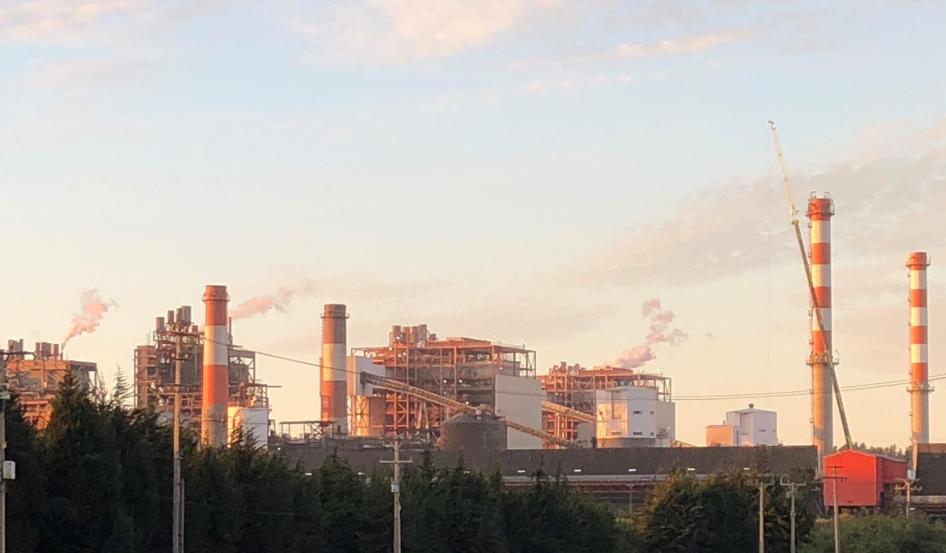(Washington, DC) – Chile’s Supreme Court should consider international law and standards protecting human rights and the environment in its application of the right to a pollution-free environment guaranteed in Chile’s national constitution, Human Rights Watch said yesterday in an amicus curiae brief. The international law firm Weil, Gotshal & Manges LLP, and the Cyrus R. Vance Center for International Justice of the New York City Bar Association, served as pro bono counsel for the amicus curiae brief filed in the Supreme Court of Chile.
In August and September 2018, two toxic air pollution incidents in Chile’s coastal region, in Quintero and Puchuncaví, caused a public health crisis in which more than 300 people received medical assistance for symptoms of harm from toxic substances. The region has been the site of intensive industrial development over the last 50 years, hosting refineries, power plants, and factories. Given the extensive contamination from industrial activity in the region, it is commonly referred to as a “sacrifice zone,” including by Chile’s National Human Rights Institute.
“The right to a pollution-free environment means everyone should be able to breathe without landing in a hospital emergency room,” said Marcos Orellana, environment director at Human Rights Watch. “The government has a duty to protect people’s health from being sacrificed for the benefit of industrial facilities.”
Human Rights Watch included in its brief an analysis of 16 framework principles developed by the United Nations special rapporteur on human rights and the environment. The brief argues that the court should regard these principles as highly relevant to the interpretation of the right to a pollution-free environment in Article 19(8) of the Chilean Constitution.
Human Rights Watch highlighted the following principles as particularly relevant:
- Framework Principle 1 provides that, “States should ensure a safe, clean, healthy and sustainable environment in order to respect, protect and fulfill human rights.”
- Framework Principle 7 affirms that, “States should provide public access to environmental information by collecting and disseminating information and by providing affordable, effective and timely access to information to any person upon request.”
- Framework Principle 11 maintains that, “States should establish and maintain substantive environmental standards that are non-discriminatory, non-retrogressive and otherwise respect, protect and fulfil human rights.”
Human Rights Watch did not take a position on the merits of the case. Instead, it provided Chile’s Supreme Court with legal analysis regarding the protection of human rights and the environment, including international law standards; jurisprudence from the European and Inter-American human rights courts; and decisions from courts and tribunals in Germany, France, and the United Kingdom.









